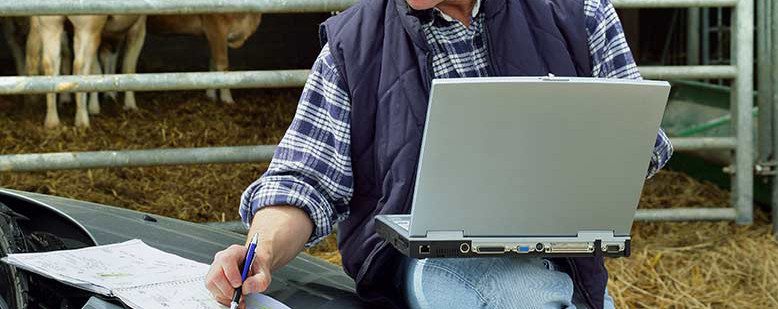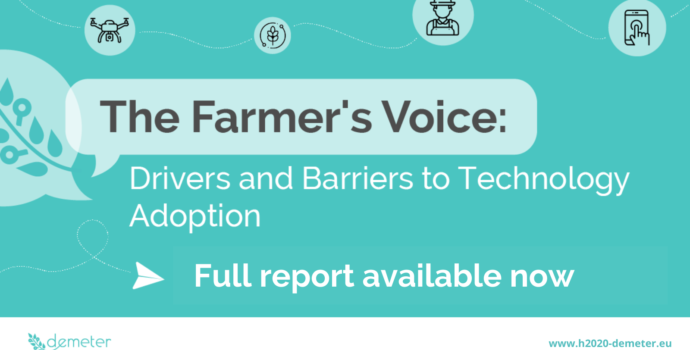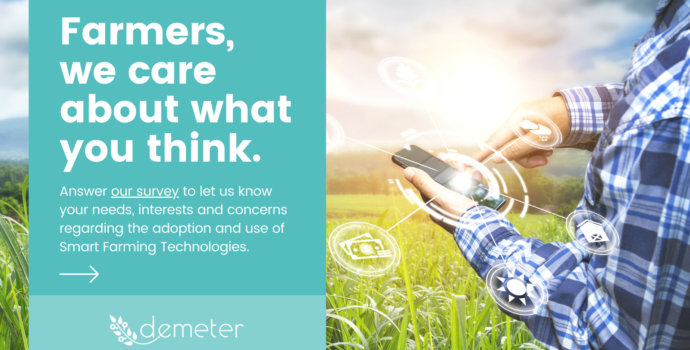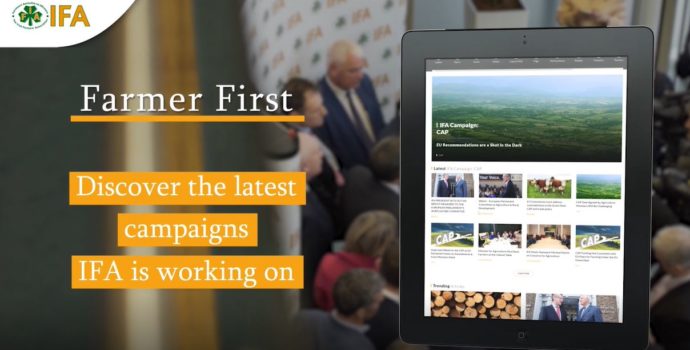
Have you ever thought about the data you collect on your farm, and how it is used, shared and stored?
Farming generates a significant amount of agricultural data, which can be of value not only to you but, when aggregated, to businesses, agencies and others – for example data on land, livestock, machines, climate, compliance and finance.
Aggregating and analysing agricultural data can provide insights and actions that have the potential to improve farm efficiency and profitability. There are businesses and services currently engaging in such analysis and benefiting from the results.
That is why clarity is needed around the value, ownership and management of agri-data.
New code of conduct
IFA has been working as part of Copa-Cogeca, the European agricultural and cooperative union to develop a new EU Code of Conduct for working with and sharing agricultural data.
The code was signed this week by a range of agriculture representative bodies across the agri-food chain. While compliance is voluntary, the signatory bodies are encouraging their member organisations to adhere to the guidance.
Dissemination of the code’s principles and implementation on the ground will take time but the code lays down some basic principles that may be useful to be aware of.
- Firstly, the code establishes that the rights on data produced on the farm or during farming operations are attributed to the farmer, as data originator.
- The collection, access, storage and usage of the collected agricultural data can only occur after explicit, express and informed permission of the data originator, via contractual arrangement.
- The data originator has the right to determine who can access and use the data
- The data originator should benefit from sharing the data with any partner that wishes to use their data.
- Originators should in no way be restricted from transmitting their data to another data user, unless otherwise agreed and justified by objective and exceptional reasons in a contract
- The contract should acknowledge the right of all parties to protect sensitive information via restrictions on further use or processing.
- The above are guidelines and principles, rather than requirements, but may be helpful to consider if you are signing up to a new supplier or service.
It may also be useful to consider these questions:
- Is there an agreement/contract in place?
- What obligations are there? What warranties and indemnities are on each party?
- What data is collected?
- Who owns/controls access to the data?
- What services are delivered?
- Will my data be used for other goals than providing me, data originator (e.g. for instance farmer) a service? Is it clear what these are? Can I agree/disagree? What are/is the benefits/value for me (data originator)?
- Is data shared with other parties? What rules do the external parties adhere to? Can I agree/disagree with sharing data with other parties?
- Can the service provider change the agreements unilaterally?
- What happens when the service provider changes ownership?
- Can I retrieve my dataset from the system in a usable format?
- Will I be updated on security breaches?
- Can I opt out of the service and have my data deleted from the system?
- Is there a contact point to assist me with my questions?
- Do you have a need for insurance?
- What are the terms of confidentiality?




